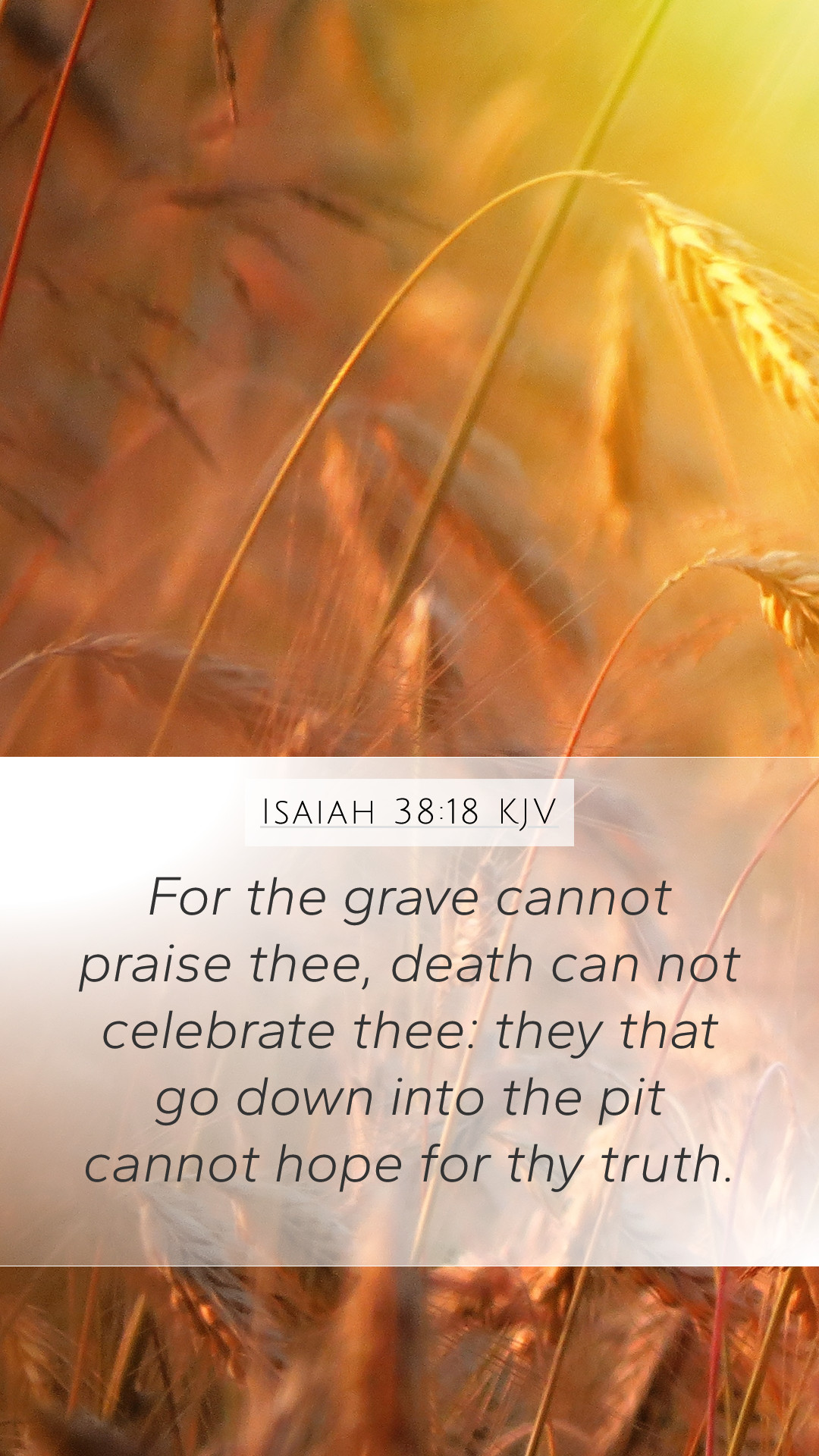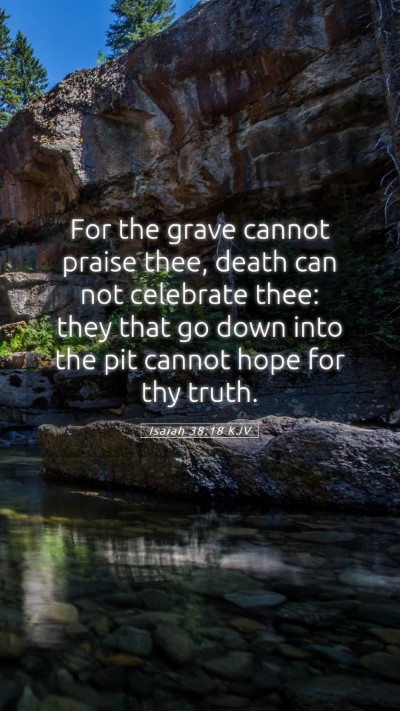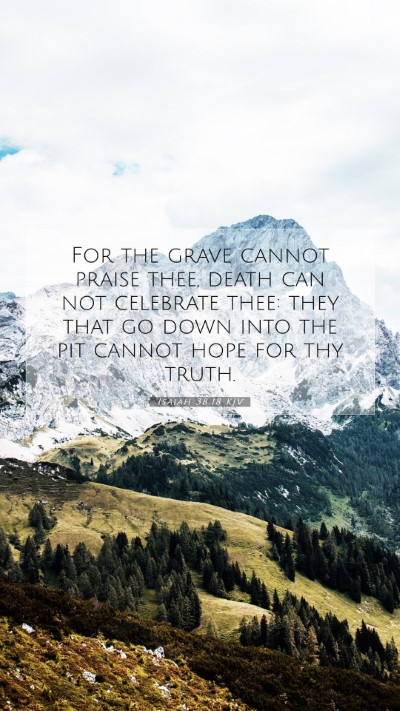Understanding Isaiah 38:18
Isaiah 38:18 states: "For the grave cannot praise thee, death cannot celebrate thee: they that go down into the pit cannot hope for thy truth."
Overview of the Verse
This verse reflects the profound truth about the relationship between life and worship, emphasizing that the dead cannot engage in the praises of God. It arises within the context of Hezekiah's illness and subsequent healing, highlighting the sacredness of life and the opportunities for worship that come with it.
Historical Context
The situation surrounding Isaiah 38 involves King Hezekiah, who was stricken with a terminal illness. After seeking the Lord and receiving a promise of healing, Hezekiah expresses gratitude for being spared from death. The verse emphasizes the unavailability of praises from the dead, contrasting life with death.
Bible Verse Commentary
-
Matthew Henry:
Henry notes that the grave is a place of silence and cannot glorify God. He emphasizes that living beings have the responsibility to speak praises while they still can. The dead are unable to testify to God's goodness, making it paramount for the living to recognize their time to worship.
-
Albert Barnes:
Barnes elaborates on the idea that those who enter the grave cannot express faith or hope. He stresses the urgency of life and the need to utilize one's time on earth for the service of God, as death removes the opportunity for such expressions.
-
Adam Clarke:
Clarke interprets this verse as a poignant reminder of mortality and the importance of life in glorifying God. He discusses the Hebrew terms used in this verse and their implications, reinforcing the belief that worship is solely a charge to the living.
Key Themes
- Worship and Life: The verse captures the essence of worship, showing that engagement with God is a privilege of the living.
- Mortal Existence: It underlines the fleeting nature of life and encourages individuals to make praising God a priority while they still have breath.
- Hope in God's Truth: There’s an inherent call to hope in God’s promises, particularly concerning His faithful nature, which shines prominently while one is alive.
Application of the Verse
Isaiah 38:18 encourages believers to reflect on their own lives and to seize every opportunity for praise and worship. Understanding the gravity of this passage can lead to a more intentional lifestyle where worship isn't just an act but a daily practice embraced in gratitude for life itself.
Cross References
- Psalm 115:17: "The dead do not praise the LORD, nor do any who go down into silence."
- Ecclesiastes 9:5: "For the living know that they will die, but the dead know nothing."
- Revelation 21:4: "He will wipe every tear from their eyes. There will be no more death or mourning or crying or pain..."
Conclusion
In summary, Isaiah 38:18 presents a profound insight into the nature of life and worship. The teachings of Matthew Henry, Albert Barnes, and Adam Clarke reveal the urgency of praising God while there is still time, urging believers to reflect on the importance of worship in the present moment. Through a deeper understanding of Scripture, individuals can harness the insights of this verse for personal growth and community discussions, enriching their Bible study experiences.


